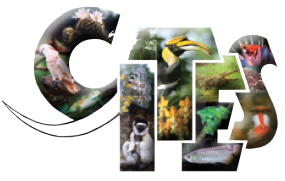
It has been scheduled from September 23 to October 5 2016 at Sandton Convention Center, Johannesburg.
CITES is a treaty to protect wild animals and plants against over-exploitation through commercial trade.
Host, the South African Government, through the minister of environmental affairs Edna Molewa, will deliver a key note address, including other prominent figures from other countries.
Discussions would resonate on, outright bans on international trade in species facing extinction; allows trade, under stringent conditions, of species that may become threatened if no steps are taken and a list of species named unilaterally by countries that want other nations’ cooperation to prevent illegal or unsustainable exploitation, among others.
The CITES conference will sift through 62 proposals to tighten or loosen trade restrictions on some 500 species.
With rhino poaching out of hand in SA, delegates will find it hard to deal with this controversial matter.
The signatories of the treaty, which came into force in 1975, are 182 countries and the European Union, with 5,600 animal and 30,000 plant species on their radar.
To be dissected:
Rosewood -Commercial demand for rosewood, a highly valuable timber, has escalated in Asia, fuelling a massive, cross-border criminal network;
Sharks -Sharks are often viewed as fierce predators but are in decline due to overfishing spawned by a growing appetite for their fins to make fin soup, an Asian delicacy;
Lion -Nine west African countries want a ban in the commercial trading of lions. Numbers of African lions have declined more than 40 percent in two decades due to habitat loss and prey shortages;
Pangolin -The elusive scaly ant-eating animal is critically endangered and ranked as the most trafficked mammal on earth with more than a million poached in the past decade;
African elephant -Trade in elephant ivory is strictly forbidden, but Namibia and Zimbabwe want the ban lifted so they can sell stockpiles and fund community elephant conservation initiatives.
The radical move contradicts proposals put forward by a coalition of 29 other African countries that want a complete end to ivory trade.
President Jacob Zuma will open the conference on Saturday 24.
Over 2000 delegates are expected.
